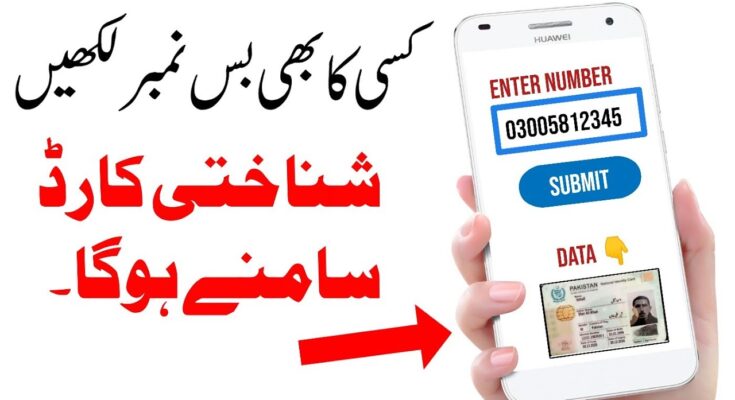Introduction to SIM Registration in Pakistan
Pakistan mandates SIM card registration to uphold telecom security and ensure user accountability within the telecommunications sector. The regulatory framework, established by the Pakistan Telecommunication Authority (PTA), oversees compliance for all mobile operators in the country. SIM registration requires an individual’s Computerized National Identity Card (CNIC) to validate ownership, linking personal data with each mobile number.
This process aims to combat misuse of SIM cards, reduce fraudulent activities, and enhance national security. Biometrics verification, such as thumb impressions, is integral to the process, ensuring accurate identification. All users, whether acquiring a new SIM or verifying existing ones, must adhere to PTA guidelines to maintain active services.
Legal Framework Surrounding SIM Ownership Details
The legal framework regulating SIM ownership in Pakistan is governed primarily by telecommunications laws and strict directives from the Pakistan Telecommunication Authority (PTA). These regulations mandate biometric verification as a prerequisite for SIM activation, ensuring that every SIM card remains linked to the National Database and Registration Authority (NADRA) records.
Under PTA rules, individuals are prohibited from owning more than five SIM cards across all service providers. Furthermore, unauthorized access to or misuse of another person’s registered SIM data is considered a criminal offense under electronic crime laws. Service providers are held accountable for compliance and must maintain detailed records of all issued SIMs.
Methods to Identify SIM Owner Details
To determine the ownership details of a SIM card in Pakistan, a variety of approaches are available, supported by regulatory measures and modern technology:
- SMS Verification Services: Users can send their CNIC number via SMS to a designated government code (e.g., 668) to receive information about active SIM cards registered under their ID.
- Official Biometric Systems: Visiting a mobile service provider’s franchise or customer service center allows for biometric verification to access SIM ownership details securely.
- Online Portals: Telecom operators provide official websites or apps where users can log in using their credentials to check active SIM registrations.
- Helpline Assistance: Calling the customer service helpline of respective telecom companies may assist users in confirming ownership details.
Online Verification Services: Features and Accessibility
Online verification platforms provide individuals with tools to authenticate SIM ownership and retrieve essential details about registered numbers. These services often include features such as real-time data retrieval, multi-network compatibility, and streamlined interfaces for user convenience. Many platforms are accessible 24/7, ensuring easy access regardless of timing or location.
Key benefits include:
- Transparency: Instant verification of registered SIM data.
- Security: Protects users from unauthorized access to mobile numbers.
- Ease of Use: Designed to be intuitive and straightforward.
- Wide Accessibility: Supports multiple languages and mobile-friendly interfaces.
Such services cater to legal requirements and enhance user confidence in managing personal data effectively.
Direct Inquiry: Engaging with Cellular Service Providers
Individuals seeking accurate information regarding the ownership of a mobile number in Pakistan can directly approach cellular service providers. Telecom operators such as Jazz, Telenor, Zong, and Ufone offer reliable methods for verifying ownership records linked to SIM cards.
To initiate an inquiry, users may visit the nearest customer support center, contact the provider’s helpline, or utilize online portals where applicable. Presenting proper identification, such as a CNIC, is mandatory to authenticate the request.
Service providers may offer SMS-based or USSD features for verification, ensuring a straightforward process. Engaging directly ensures secure and precise access to crucial data.
Documentation Required for Verification Process
To ensure accurate verification of Pakistani SIM data ownership, specific documents are essential to complete the process. These documents help authenticate the identity of the SIM holder and comply with legal regulations.
- Copy of CNIC: A valid Computerized National Identity Card (CNIC) copy is mandatory. Both physical and digital versions may be accepted.
- SIM Card Information: Users must provide active mobile number and SIM-specific details to initiate the verification.
- Proof of Relationship (if applicable): If verifying on behalf of someone, documented proof of relationship may be required.
Individuals should ensure these documents are current and legible. Verification authorities may reject incomplete or outdated submissions, creating delays in the process.
Privacy Concerns and Legal Restrictions
The practice of obtaining information tied to Pakistani SIM card ownership raises significant privacy concerns. Misuse of personal data can lead to identity theft or fraudulent activities if safeguards are inadequate. Legal frameworks such as the Pakistan Telecommunication Act regulate data access for SIM cards, restricting unauthorized sharing of users’ details.
- Protecting consumer data: Telecom firms are required to ensure strict confidentiality, following PTA directives.
- Legal obligations: Individuals attempting illegal access are subject to penalties, including fines and imprisonment.
- Law enforcement agencies are authorized to retrieve SIM-related information under strict protocols. Both private corporations and users must align with these laws to prevent breaches.
Concluding Remarks on Responsible Information Usage
Responsible usage of mobile number verification tools demands attention to privacy, security, and ethical practices. Users must ensure compliance with relevant laws governing access to SIM data, including avoiding unauthorized use. Emphasizing transparency, educating oneself on data protection policies, and respecting the boundaries of personal information are pivotal steps to uphold ethical standards.
Stakeholders should advocate for robust security measures when accessing sensitive data, particularly in the digital landscape. Regularly updating knowledge about technological advancements and regulatory changes enables informed decision-making. Promoting responsibility prevents misuse, builds trust, and reinforces a safe digital environment for all parties involved.



